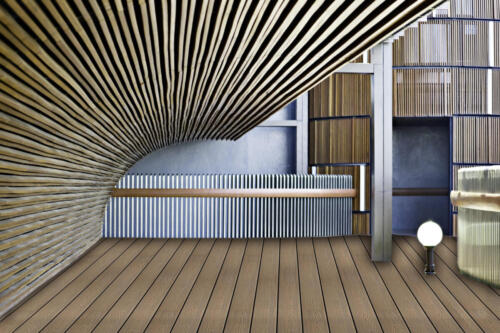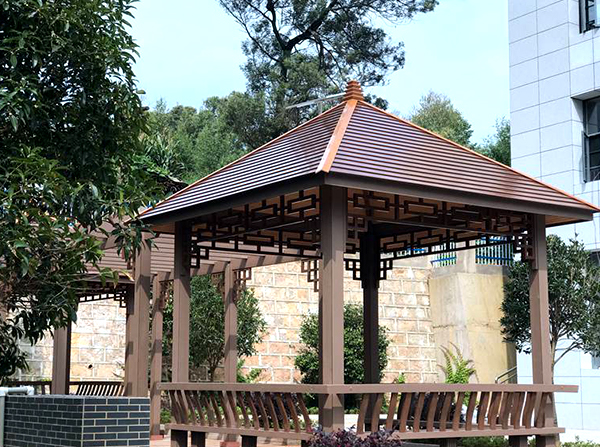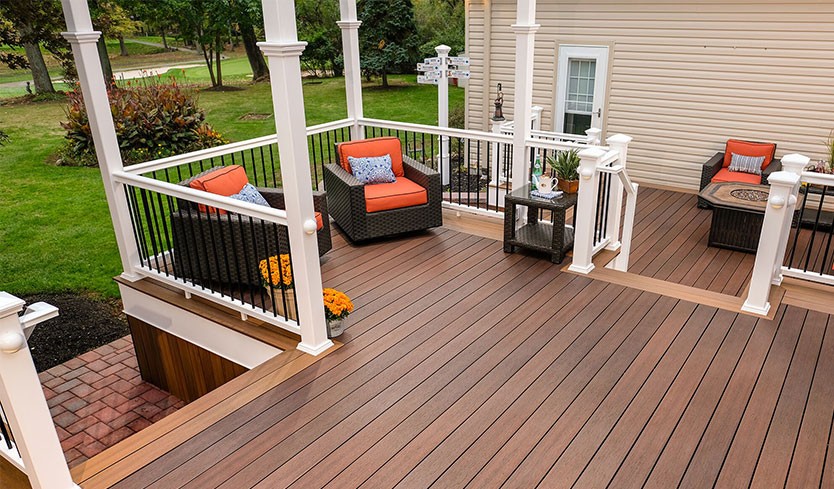WPC Wood Egypt: Egypt, with its rich history and iconic architecture, is embracing a new trend that’s both modern and environmentally friendly. Enter WPC wood, short for Wood-Plastic Composite. This innovative material is making waves in Egypt’s construction and design sectors, bringing together the combinations of natural appearance of wood and the durability of plastic material. As urbanization and the demand for sustainable building materials continue to rise, WPC wood is quickly becoming a popular choice.
Table of Contents
The Rise of WPC Wood Egypt
Egypt, known for its architectural marvels like the Pyramids and ancient temples, is now turning its eyes towards a future where sustainability meets design. In recent years, WPC wood has gained significant traction in the Egyptian market. This popularity can be counted to a growing awareness of environmental issues and the reqiurment for more durable, low-maintenance building materials in a climate that can be both harsh and unpredictable.
Why is WPC Wood So Popular in Egypt?
The reasons behind WPC wood’s popularity in Egypt are manifold. Firstly, WPC wood offers a sustainable alternative to traditional timber. Made from a blend of recycled wood fibers and plastic, it helps reduce the demand for virgin wood, thus promoting the conservation of forests. Secondly, its resistance to moisture, rot, and insect infestation makes it particularly suitable for Egypt’s hot and arid climate. Unlike traditional wood, which can warp, crack, or require frequent maintenance, WPC wood remains stable and attractive, even under extreme weather conditions.

Applications of WPC Wood Egypt Construction
WPC wood is finding its way into various applications across Egypt. From residential to commercial projects, its versatility is a major selling point. In residential areas, WPC wood is commonly used for decking, providing homeowners with a beautiful yet durable outdoor living space. It’s also popular for cladding, offering a sleek and modern look for both interior and exterior walls. In commercial settings, WPC wood is being used for facades, signage, and even furniture, thanks to its ability to mimic the look and feel of natural wood while offering superior performance.
Market Growth and Investment Opportunities
The WPC wood market in Egypt is expanding rapidly, with both local and international manufacturers recognizing the potential of this market. Increased investment in infrastructure as well as rapid real estate development has further fueled the demand for WPC products. Companies are setting up local manufacturing units to cater to the growing needs, creating job opportunities and boosting the economy. This growth is also supported by government initiatives promoting sustainable construction practices, making WPC wood a key component of Egypt’s green building strategy.
Challenges and the Way Forward
Despite its growing popularity, the WPC wood market in Egypt faces certain challenges. Awareness about the product is still limited among some builders and consumers, and misconceptions about its cost compared to traditional materials can hinder its adoption. However, with more education and marketing efforts, these barriers are gradually being overcome. Industry players are focusing on highlighting the long-term benefits and cost savings of using WPC wood, which include reduced maintenance and a longer lifespan.
A Global Perspective: The Rise of WPC Wood Worldwide
The adoption of WPC wood is not just limited to Egypt; it’s a global phenomenon. Countries across the world, from the United States to China, are recognizing the benefits of this sustainable material. As the global construction industry shifts towards greener alternatives, the demand for WPC wood continues to grow. This trend is driven by both environmental concerns and the desire for high-quality, low-maintenance building materials. In countries with harsh climates, such as those in the Middle East and Africa, WPC wood offers a practical solution that stands the test of time.

HOSUNG WPC: Leading the Charge
As Egypt continues to embrace WPC wood, companies like HOSUNG are at the forefront of this transformation. HOSUNG WPC is renowned for its high-quality products that combine aesthetic appeal with unmatched durability. Their range of WPC wood products is designed to meet the unique needs of the Egyptian market, offering solutions that enhance both residential and commercial spaces. With a commitment to sustainability and innovation, HOSUNG WPC is helping to shape the future of construction in Egypt, providing eco-friendly options that don’t compromise on style or performance.
The future of WPC wood in Egypt looks bright. With its many advantages over traditional materials, it’s no surprise that WPC wood is becoming a preferred choice for modern construction projects. As awareness grows and the market expands, WPC wood will play a crucial role in building a more sustainable and aesthetically pleasing environment in Egypt. By embracing this innovative material, Egypt is not only preserving its architectural legacy but also paving the way for a greener, more sustainable future.




